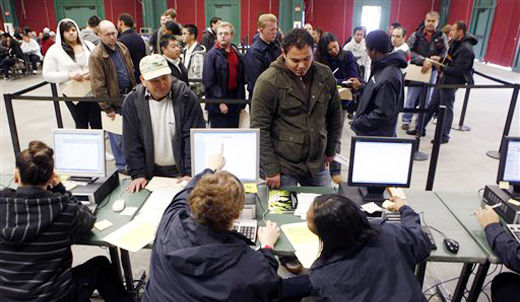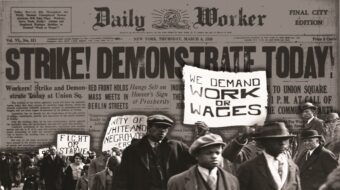
The jobs bill now being drafted in the Senate, only half the size of the one passed by the House in December, is “not enough for labor,” AFL-CIO President Richard Trumka declared yesterday. “We must act on a scale that will be meaningful. We need more than 10 million jobs just to get out of the hole we’re in.”
Aides to key senators involved in the drafting say the bill being put together in the Senate focuses on tax credits for small businesses as a way of creating jobs.
The bill that passed in the House, a $154 billion measure, includes extensions of unemployment benefits and COBRA coverage and additional funds for food stamps. It also provides states with money to allow them to hold onto workers they were able to retain because of the administration’s original stimulus package.
The labor movement and its allies are growing increasingly concerned about the fact that the bill in the Senate does not extend aid to the jobless and about what they consider the overall small size of the bill shaping up there.
Senators say they hope to pass a bill by mid-February.
According to aides to Senate Majority Whip Richard Durbin, D-Ill., a co-author of the bill, the smaller Senate measure includes aid to state and local governments, money to build infrastructure and funds for alternative energy in addition to the job creation tax credit.
The labor movement is not alone in its push for a bigger bill.
Sen. Tom Harkin, D-Iowa, and the chair of the Senate’s Labor Committee, said yesterday that he too favors a much larger bill. “Smaller steps won’t do it,” said Harkin. “We have a big recession and we need big steps to deal with it.”
Photo: At a job fair in Santa Clara, Calif., Jan. 23. Paul Sakuma/AP












Comments